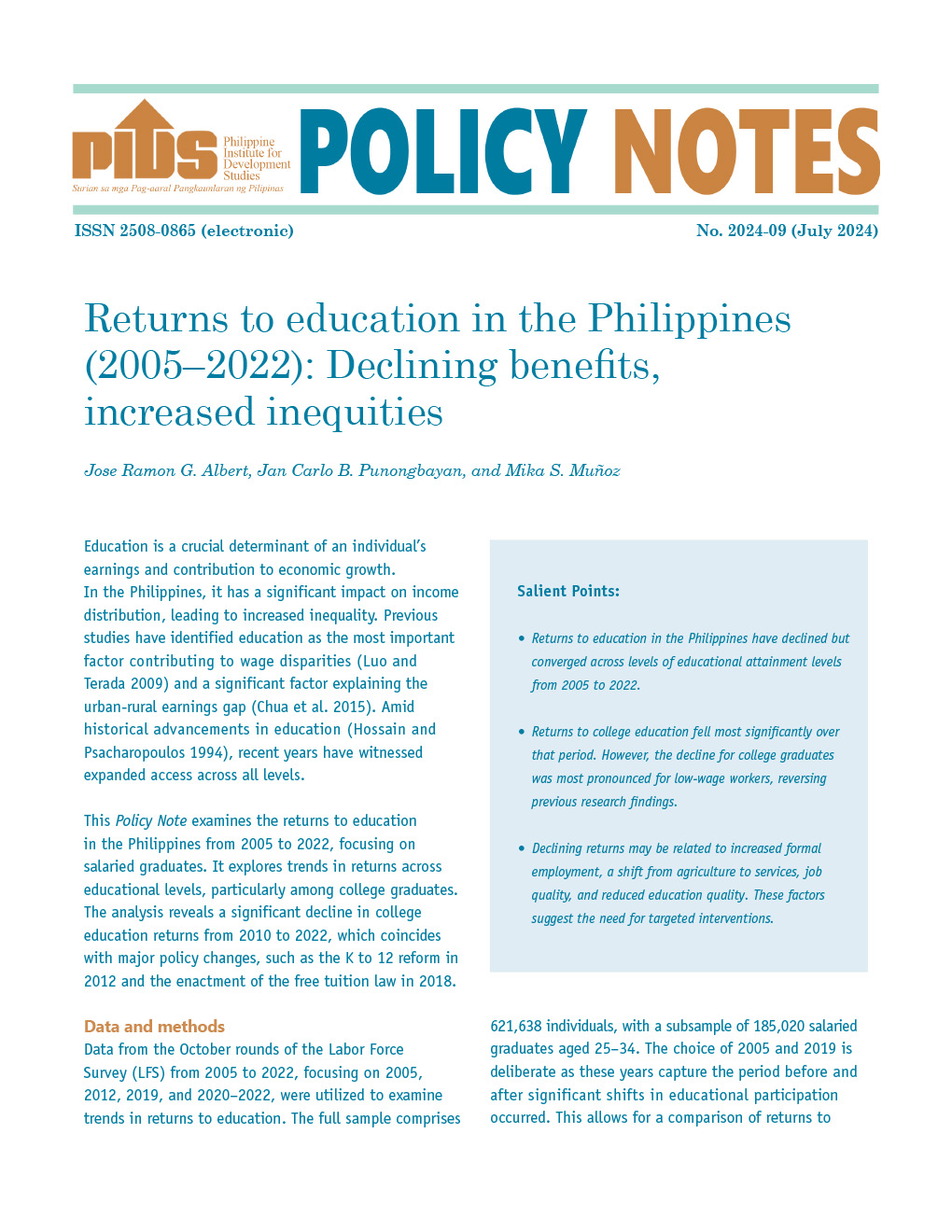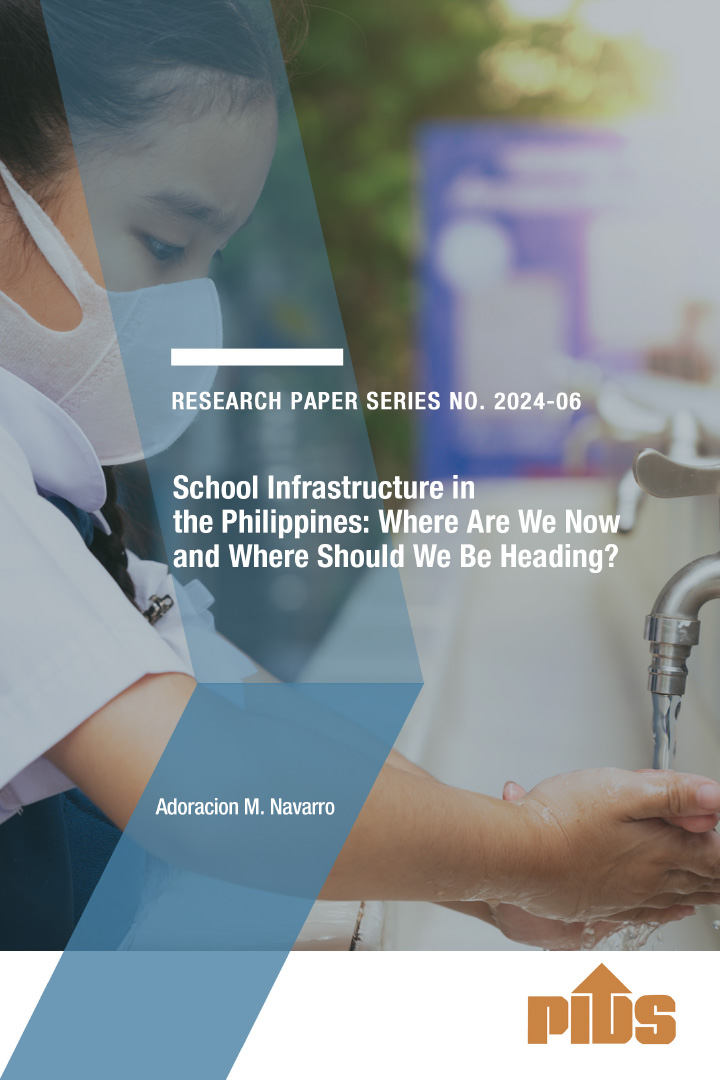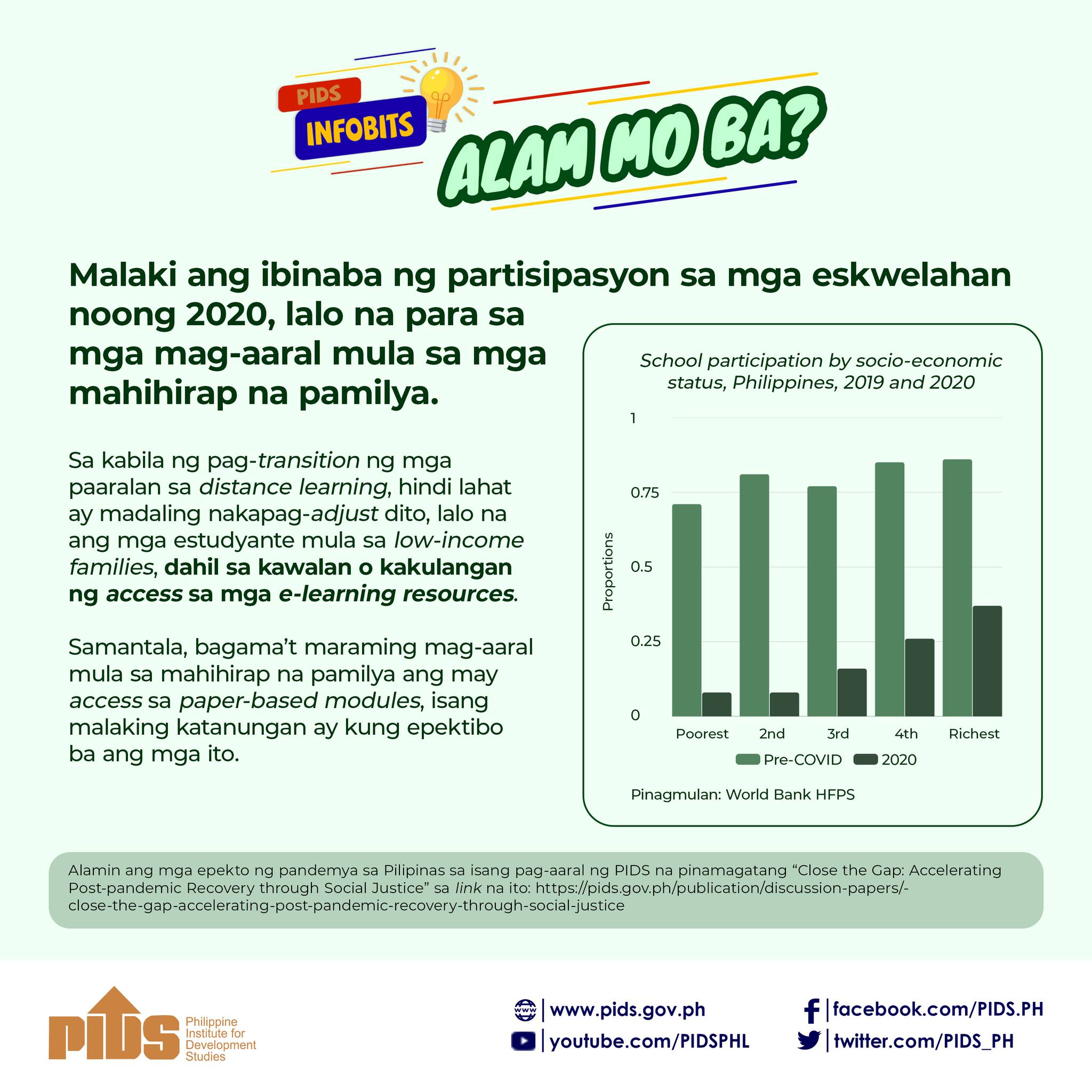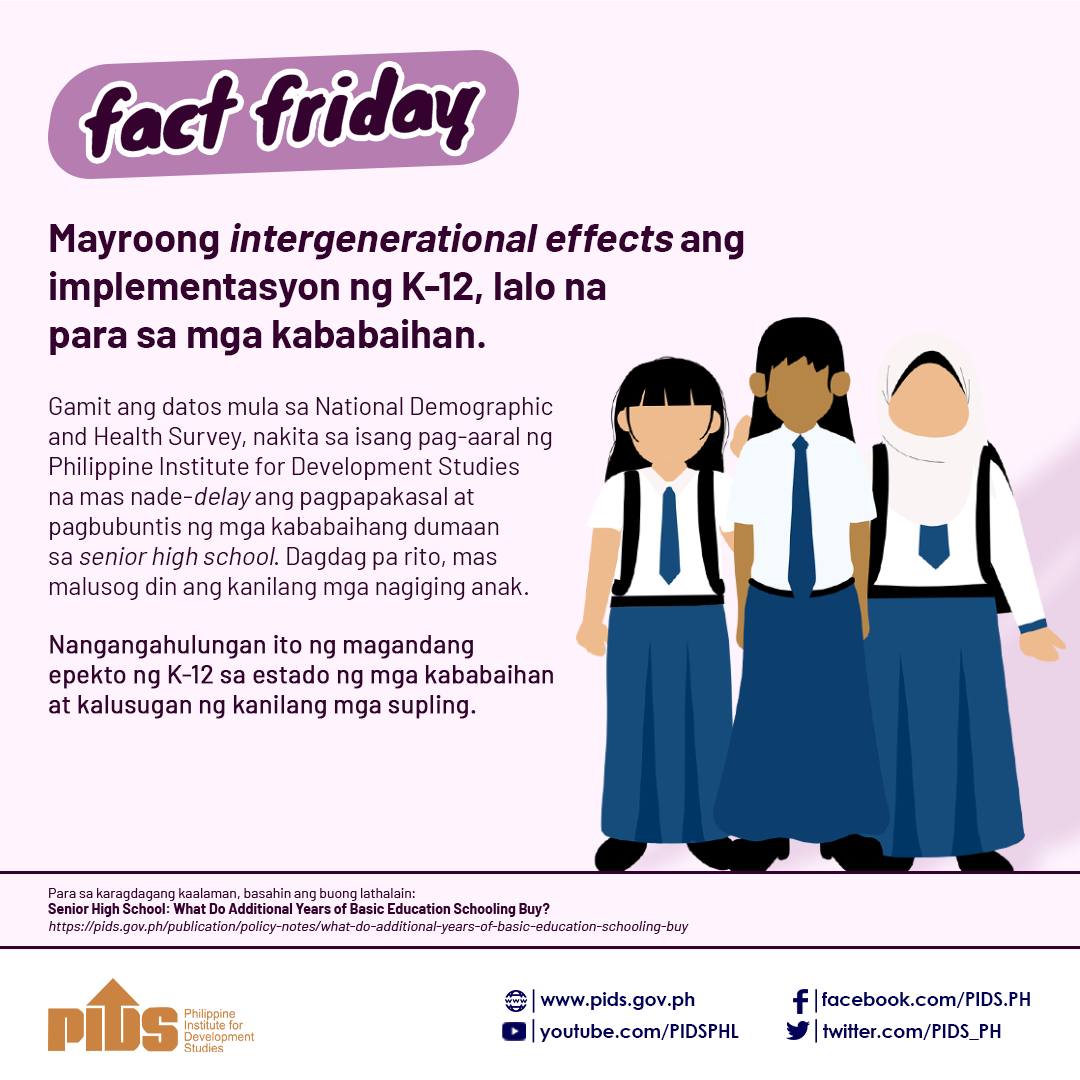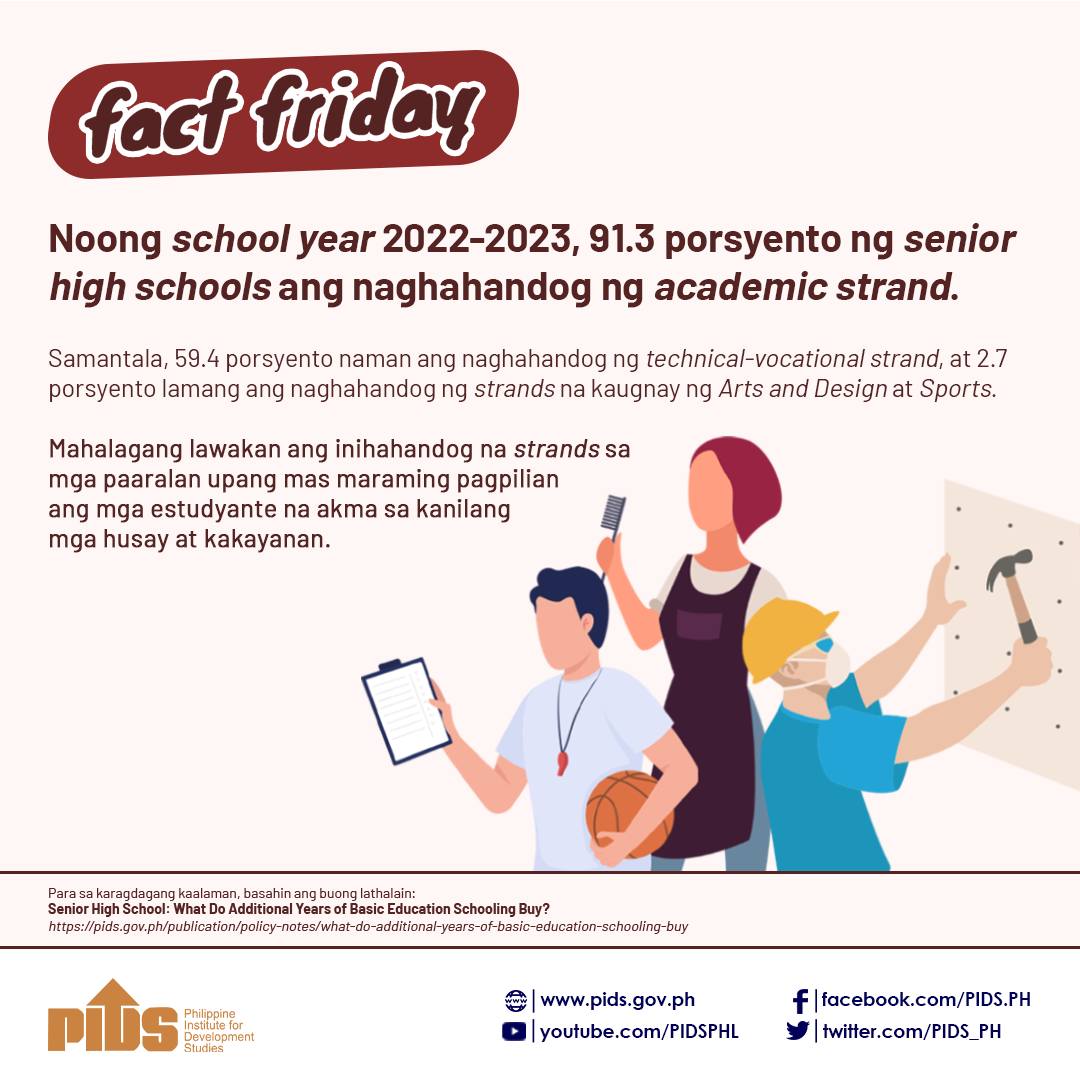MANILA, Philippines – “Some senior high school students (SHS) cannot even write a decent English sentence.”
An article by the think tank Philippine Institute for Development Studies (PIDS) on Monday, April 20, said SHS difficulty in writing in English was particularly evident in research projects.
According to Kristel Brillantes, consultant at PIDS, students were submitting projects for compliance only, preventing them from applying their learning from the SHS curricula.
Brillantes described the current SHS curricula as “too ambitious” and was designed for urban students such as science schools in Metro Manila.
The article said that this led to another problem such as understanding activities “further worsened by lack of resources.”
It also cited the lack of computers of some students which made it hard for them to understand and join the discussion on their computer literacy subject.
The article also noted that even teachers faced challenges teaching students due to “insufficient guidelines, inadequate materials, and preparations.”
“Students are decrying the ‘too much’ reporting, which made them feel they teach more than their teachers do,” the article said.
Aside from the difficulty faced by students in writing in English, the report also raised the concern about students balancing between academics and sports or arts classes.
“On top of their regular academic programs, the athletes, for instance, still need to join different activities, such as sports competitions, to expose them to opportunities outside SHS,” Brillantes said in the article.
The students, according to the report, developed sentiments that teachers and students looked down on them because they are “not smart enough” for being under the sports track.
“DepEd should help them understand why there has to be different SHS tracks, as it is currently unclear to both the students and the teachers, leading to bias against those pursuing sports and arts tracks,” Brillanes said as quoted in the article.
Meanwhile, the report also said that these problems were “mere birth pains” of the SHS program. Brillantes then called on the Department of Education and other agencies involved, such as the Commission on Higher Education and the Technical Education and Skills Development Authority, “to iron out policies related to SHS.”
An article by the think tank Philippine Institute for Development Studies (PIDS) on Monday, April 20, said SHS difficulty in writing in English was particularly evident in research projects.
According to Kristel Brillantes, consultant at PIDS, students were submitting projects for compliance only, preventing them from applying their learning from the SHS curricula.
Brillantes described the current SHS curricula as “too ambitious” and was designed for urban students such as science schools in Metro Manila.
The article said that this led to another problem such as understanding activities “further worsened by lack of resources.”
It also cited the lack of computers of some students which made it hard for them to understand and join the discussion on their computer literacy subject.
The article also noted that even teachers faced challenges teaching students due to “insufficient guidelines, inadequate materials, and preparations.”
“Students are decrying the ‘too much’ reporting, which made them feel they teach more than their teachers do,” the article said.
Aside from the difficulty faced by students in writing in English, the report also raised the concern about students balancing between academics and sports or arts classes.
“On top of their regular academic programs, the athletes, for instance, still need to join different activities, such as sports competitions, to expose them to opportunities outside SHS,” Brillantes said in the article.
The students, according to the report, developed sentiments that teachers and students looked down on them because they are “not smart enough” for being under the sports track.
“DepEd should help them understand why there has to be different SHS tracks, as it is currently unclear to both the students and the teachers, leading to bias against those pursuing sports and arts tracks,” Brillanes said as quoted in the article.
Meanwhile, the report also said that these problems were “mere birth pains” of the SHS program. Brillantes then called on the Department of Education and other agencies involved, such as the Commission on Higher Education and the Technical Education and Skills Development Authority, “to iron out policies related to SHS.”

